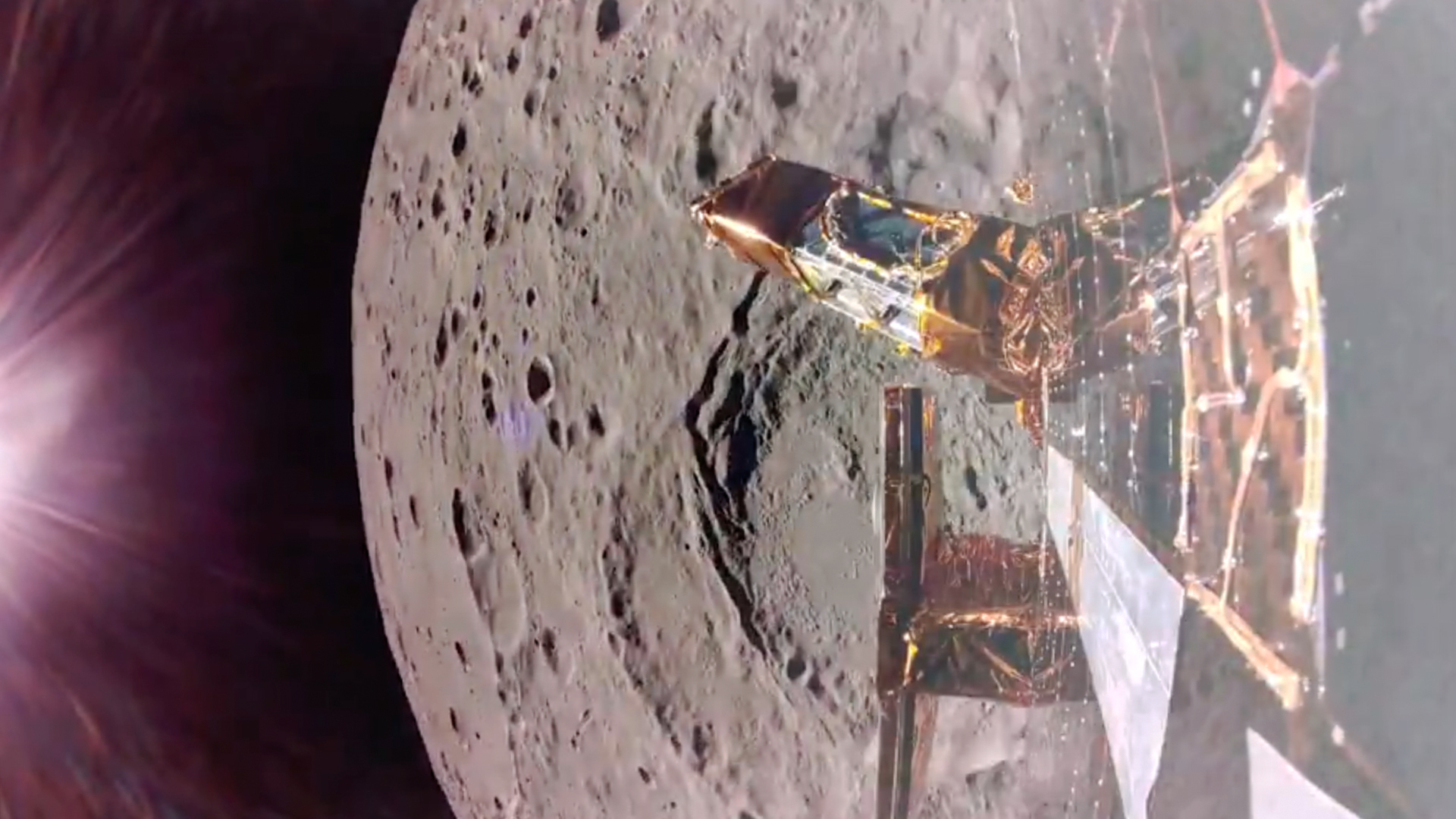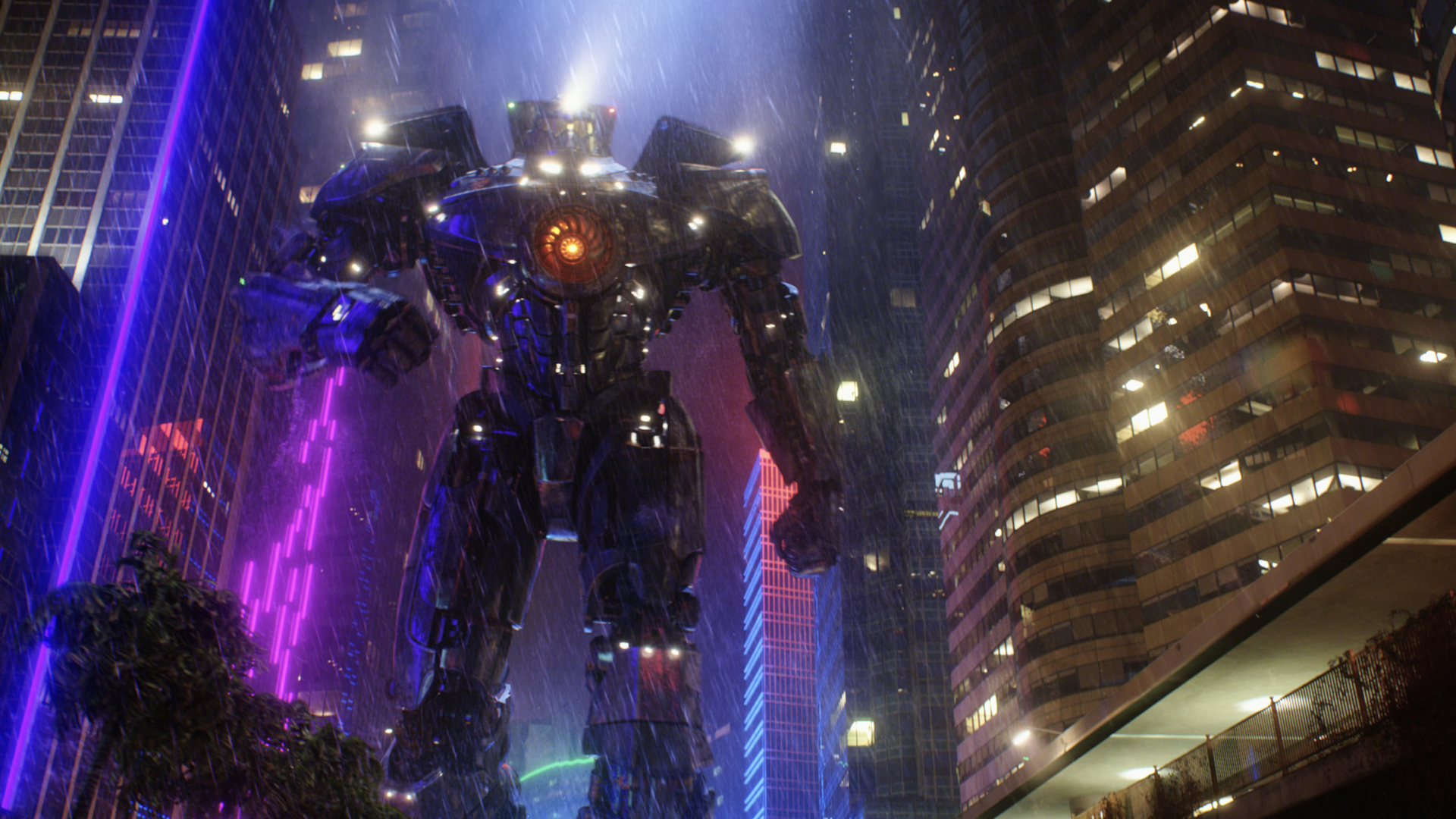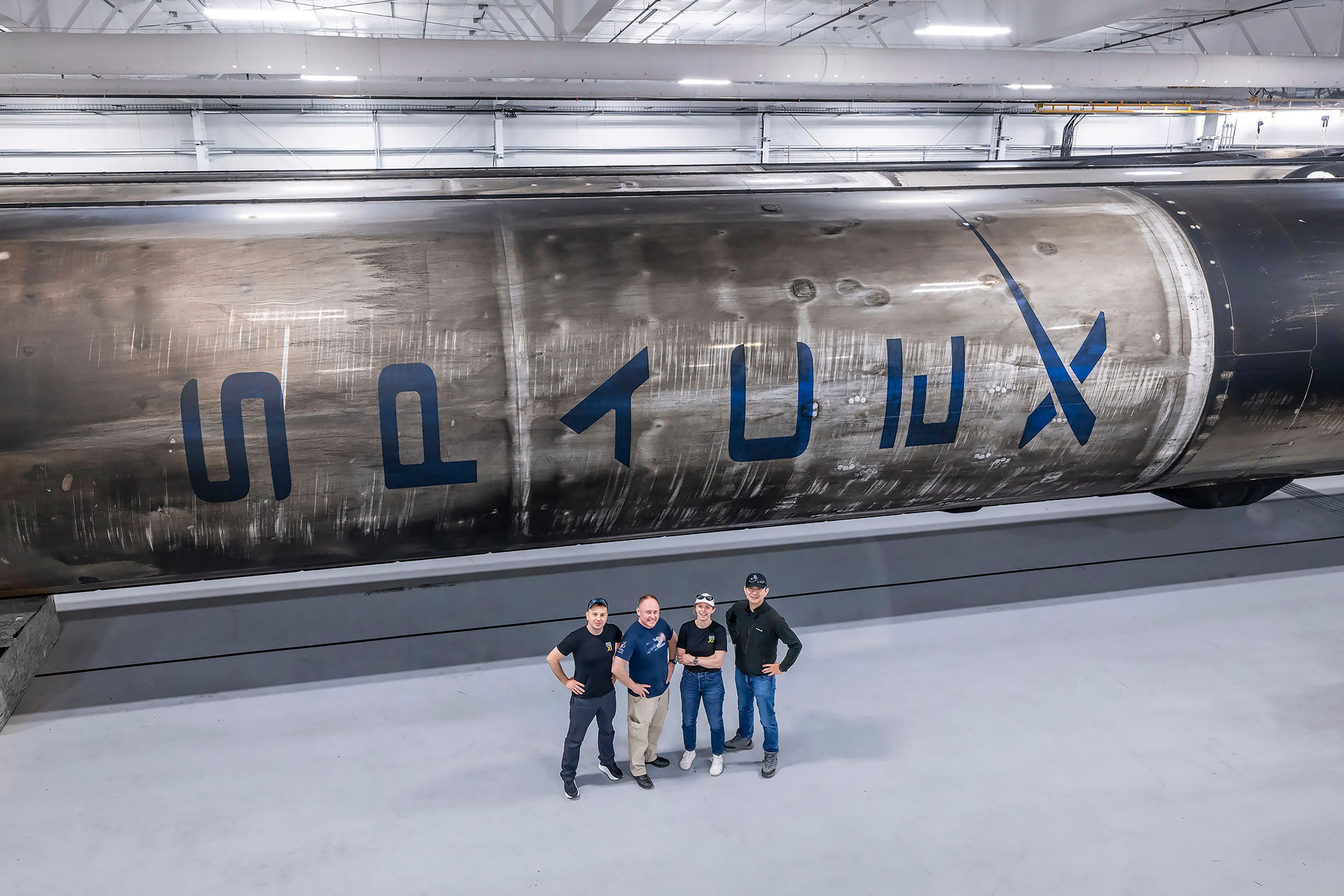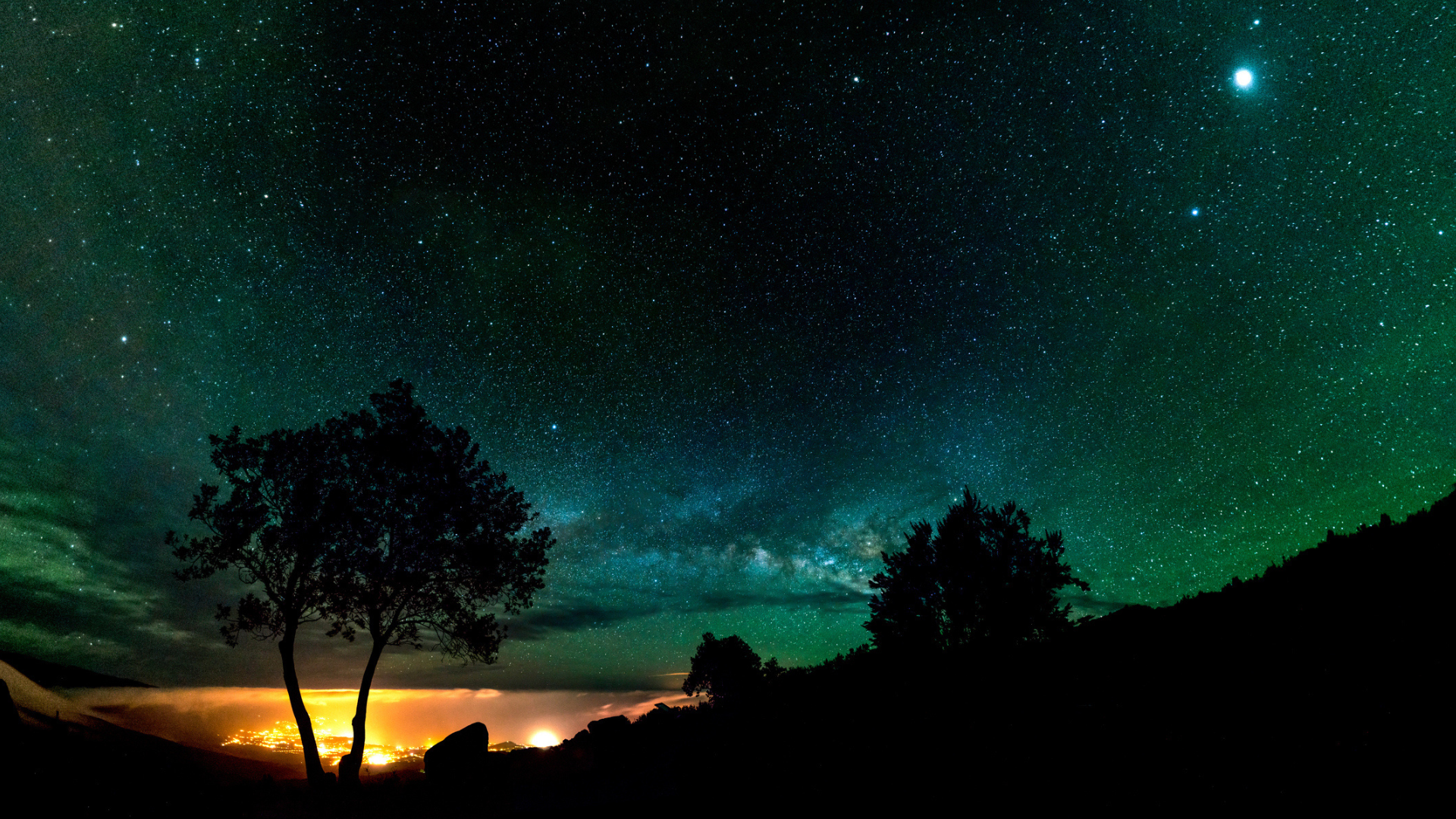Astronauts celebrate Tokyo Paralympics opening day with 'torch' ceremony in space
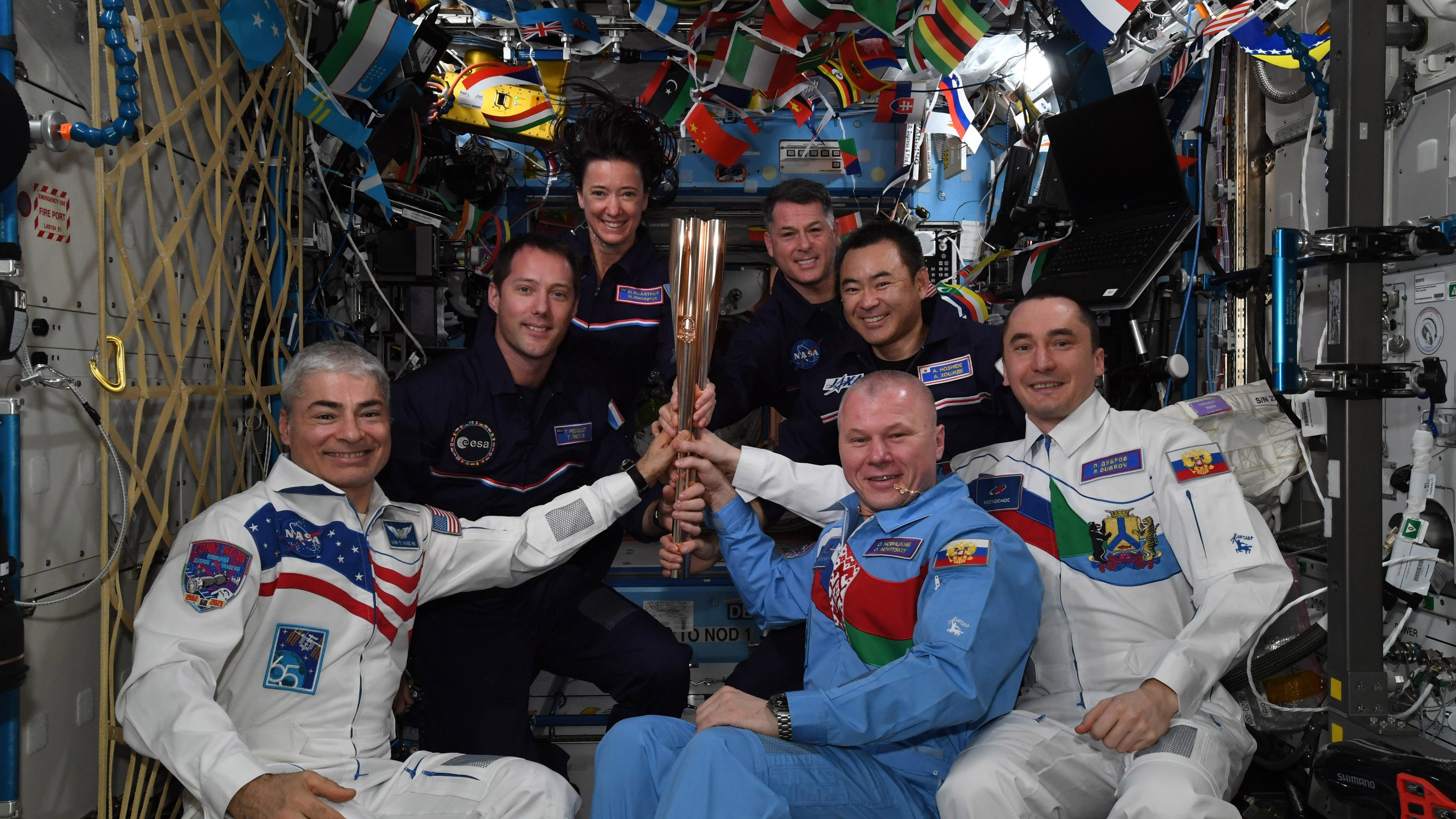
As the Paralympic Games kicked off in Tokyo this week, astronauts at the International Space Station celebrated the quadrennial sporting event in space.
On the opening day of the Tokyo Paralympic Games on Tuesday (Aug. 24), Russian cosmonaut Oleg Novitskiy posted a photo on Twitter showing the current seven occupants of the International Space Station (ISS) posing with a "torch" inside one of the station's modules under a ceiling decorated with national flags.
The torch, which appears golden in the image, of course, is not burning.
"The torch itself is a bundle of five tubes in the form of sakura petals with gold trim," Novitskiy said in the Tweet. "The ISS-65 Expedition crew wishes all the participants good luck!"
Related: Watch astronauts hold their own Summer Olympics in space with zero-g synchronized swimming and more
The 2020 Summer Paralympic Games, postponed from last year due to the ongoing COVID-19 pandemic, officially kicked off Tuesday (Aug 24) and will close on Sept. 5. About 4,400 athletes with various types of disabilities representing 162 nations will participate in the games.
While astronaut candidates have traditionally been required to be fully able-bodied people, the space station might soon welcome its first "parastronaut." Earlier this year, the European Space Agency (ESA) invited qualified experts with certain types of disabilities to apply for a special astronaut feasibility study. The agency launched the call for astronauts with disabilities together with its current astronaut recruitment round in February.
Get the Space.com Newsletter
Breaking space news, the latest updates on rocket launches, skywatching events and more!
The current ISS crew — including Russian cosmonauts Oleg Novitskiy and Pyotr Dubrov, NASA's Mark Vende Hei, Shane Kimbrough and Megan McArthur, Europe's Thomas Pesquet, and Japan's Akihiko Hoshide — have previously held their own Olympic Summer Games.
Split into two teams based on the vehicle that took them to the space station — the Soyuz MS-18 and Dragon Crew 2 — the seven astronauts competed in several unique microgravity disciplines. In a video that has since gone viral, the teams performed competitive routines in synchronized space "swimming," complete with weightless tumbling and flipping. The crew members also competed in individual events, including no-floor gymnastics, and the game of "no-hand ball," which required them to pass a ping pong ball through a hatch only by blowing at it. In space sharpshooting, the sportsmen were trying to hit a target with a rubber band.
The crew later held an Olympic closing ceremony during which Japanese astronaut Akihiko Hoshide passed the torch to France's Thomas Pesquet. The next Olympic Games will be held in France's capital Paris in 2024.
Follow Tereza Pultarova on Twitter @TerezaPultarova. Follow us on Twitter @Spacedotcom and on Facebook.
Join our Space Forums to keep talking space on the latest missions, night sky and more! And if you have a news tip, correction or comment, let us know at: community@space.com.
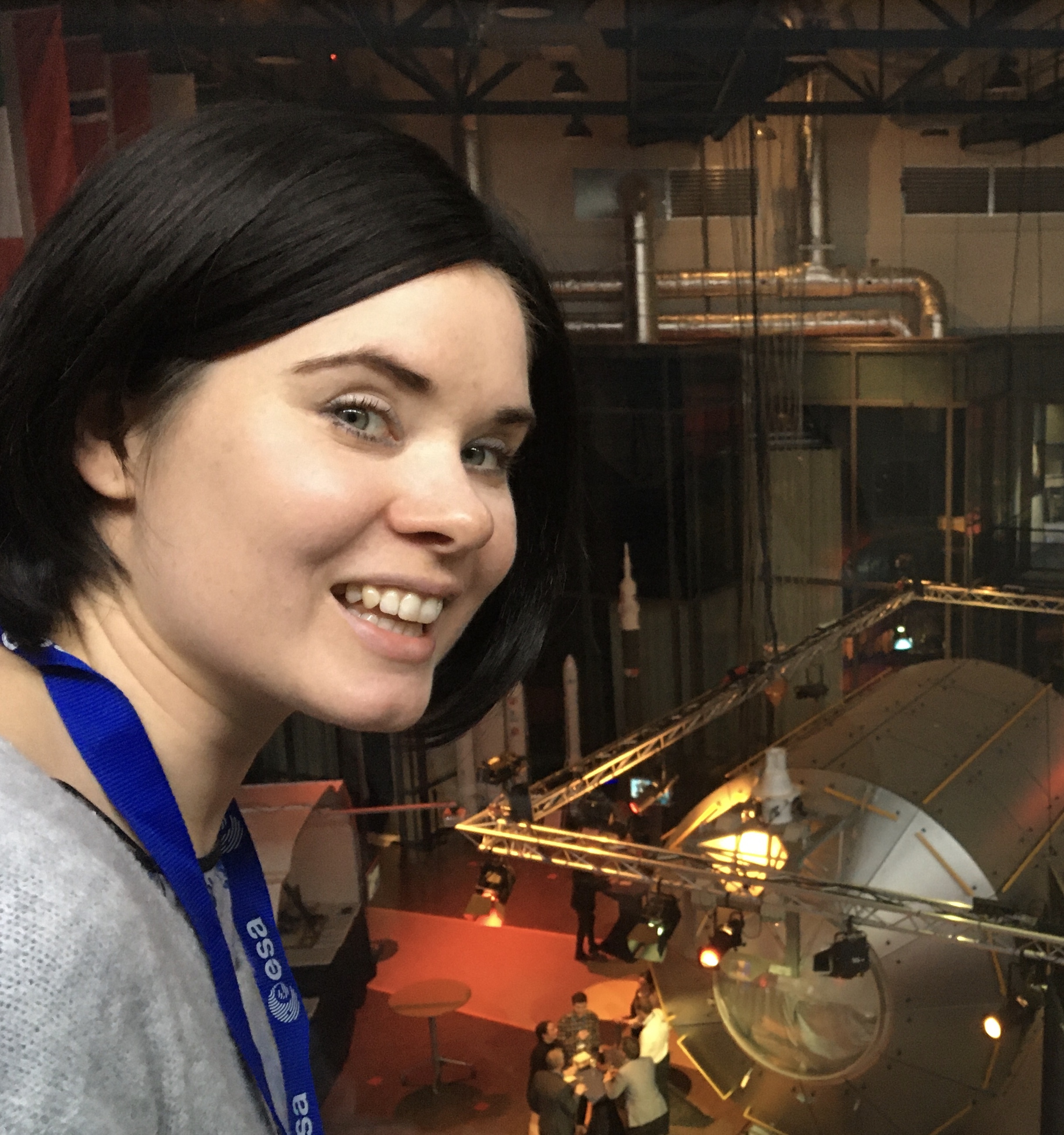
Tereza is a London-based science and technology journalist, aspiring fiction writer and amateur gymnast. Originally from Prague, the Czech Republic, she spent the first seven years of her career working as a reporter, script-writer and presenter for various TV programmes of the Czech Public Service Television. She later took a career break to pursue further education and added a Master's in Science from the International Space University, France, to her Bachelor's in Journalism and Master's in Cultural Anthropology from Prague's Charles University. She worked as a reporter at the Engineering and Technology magazine, freelanced for a range of publications including Live Science, Space.com, Professional Engineering, Via Satellite and Space News and served as a maternity cover science editor at the European Space Agency.
